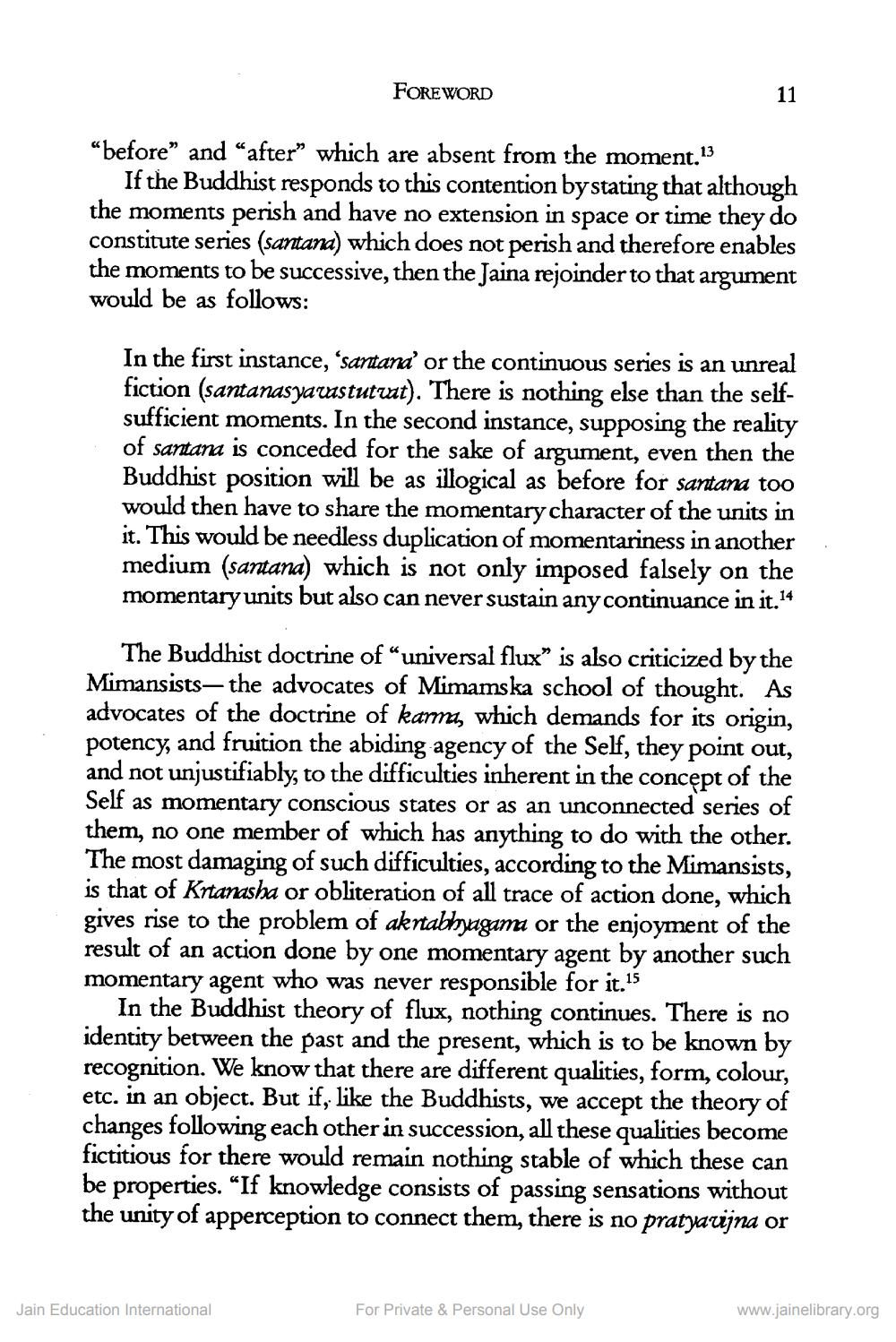________________
FOREWORD
11
"before" and "after" which are absent from the moment. 13
If the Buddhist responds to this contention bystating that although the moments perish and have no extension in space or time they do constitute series (santana) which does not perish and therefore enables the moments to be successive, then the Jaina rejoinder to that argument would be as follows:
In the first instance, 'santand' or the continuous series is an unreal fiction (santanasyarastutrat). There is nothing else than the selfsufficient moments. In the second instance, supposing the reality of santana is conceded for the sake of argument, even then the Buddhist position will be as illogical as before for santana too would then have to share the momentary character of the units in it. This would be needless duplication of momentariness in another medium (santana) which is not only imposed falsely on the momentary units but also can never sustain any continuance in it.14
The Buddhist doctrine of “universal flux" is also criticized by the Mimansists—the advocates of Mimamska school of thought. As advocates of the doctrine of karma, which demands for its origin, potency, and fruition the abiding agency of the Self, they point out, and not unjustifiably, to the difficulties inherent in the concept of the Self as momentary conscious states or as an unconnected series of them, no one member of which has anything to do with the other. The most damaging of such difficulties, according to the Mimansists, is that of Krtanasha or obliteration of all trace of action done, which gives rise to the problem of akrtabhagama or the enjoyment of the result of an action done by one momentary agent by another such momentary agent who was never responsible for it.15
In the Buddhist theory of flux, nothing continues. There is no identity between the past and the present, which is to be known by recognition. We know that there are different qualities, form, colour, etc. in an object. But if, like the Buddhists, we accept the theory of changes following each other in succession, all these qualities become fictitious for there would remain nothing stable of which these can be properties. “If knowledge consists of passing sensations without the unity of apperception to connect them, there is no pratyavijna or
Jain Education International
For Private & Personal Use Only
www.jainelibrary.org




